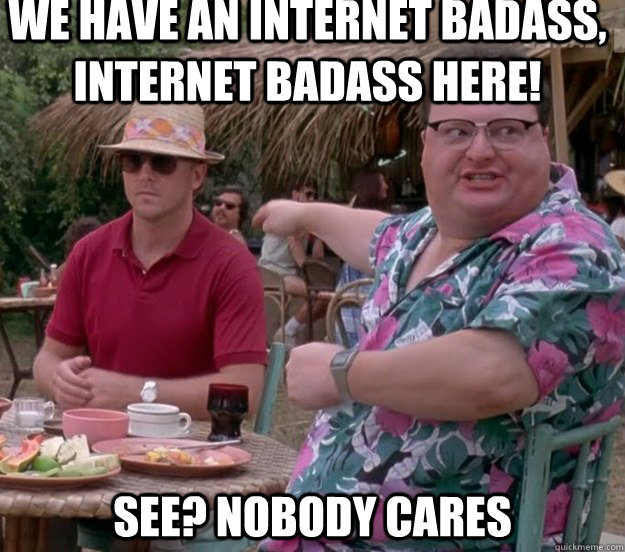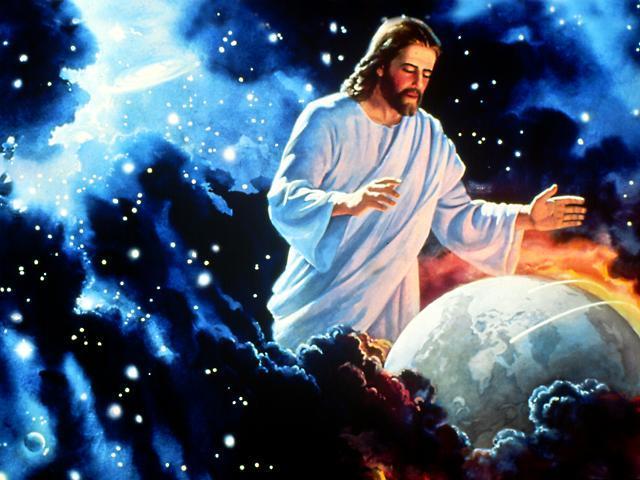A very common and working assumption in the works of liberal New Testament scholars is the belief that either 1)God doesn't exist (atheism); or 2)If He exists, he doesn't intervene in the physical world.
These assumptions are philosophical (specially, metaphysical), not historical. Historians, qua historians, cannot say that God doesn't exist, or that if He exists, He doesn't intervene in the world. How could a historian to know such a thing? How could any science to say such a thing?
When researching the life of Jesus, we're examining the life of a man who, supposedly, was divine is the broadest sense of the word. His life was filled with miracles (e.g. walking on water, turning water into wine, instantaneous spiritual healings of incurable diseases, etc.), teachings about God's kingdom, resurrection, etc.
Given the above two liberal assumptions, it is clear that they are massively question begging against the traditional view of Jesus, because they imply, in advance, that such portrait of Jesus is false, non-factual, non-historical.
Note very carefully that such conclusion derives from the two assumptions, not from the research. Even before you sit on the table to examine the evidence for the historical Jesus, you will leave out the possibility of the traditional view of Jesus being true if you accept the above two assumptions. Your assumptions will, largely, determine your conclusions (conclusions which, in advance, are anti-Christian)
Consider the following examples:
Rudolf Bultmann, a very influential liberal theologian, comments:
Man's knowledge and mastery of the world have advanced to such an extent through science and technology that it is no longer possible for anyone seriously to hold the New Testament view of the world. (New Testament and Mythology, p. 4)
Instead of such supernatural worldview filled with spirits, miracles and so forth, Bultmann thinks the proper, scientific worldview shows that:
The modern conception of human nature as a self-subsistent unity [which is] inmune from the interference of supernatural powers (ibid, p.7)
So, according to Bultmann, "science and technology" shows that supernatural powers don't intervene in human nature. But think again: How could science and technology to show such a thing? If God exists, then it cannot discarded that He could intervene in human nature in certain, specific cases. How could science to rule out such a thing? How could technology (e.g. iphones or tablets or laptops or laser beams or robots or blue rays or F-16 crafts) to be relevant to conclude that God cannot do such things? How exactly the highly advanced technology of my Samsumg Galaxy III smartphone refutes the possibility of God's intervention in the world? How exactly such physical objects of contemporary technology imply that an omnipotent, spiritual God couldn't intervene in human affairs?
Obviously, if we accept that Bultmann is right, then Jesus' resurrection or turning water into wine are non-starters. But in this case, their putative non-historicity is not a matter of evidence or research, but of a priori philosophical stipulation which determines, in advance, which facts could be historical or not.
In the introduction to the Five Gospels, the Jesus Seminar says:
The contemporary religious controversy turns on whether the world view reflected in the Bible can be carried forward into this scientific age and retained as an article of faith . . . . the Christ of creed and dogma . . . can no longer command the assent of those who have seen the heavens through Galileo’s telescope
The Christ of creed and dogma is the divine view of Jesus. Now, how exactly is such view logically incompatible with Galileo's telescope? Why exactly such view of Jesus cannot command assent of people who accept Galileo's telescope?
For the argument's sake, let's suppose that the Christ of creed and dogma is true. Suppose that God exists, incarnated himself in Jesus, and as consequence Jesus was divine. On the maximal authority provided by divinity, Jesus understably provided an authoritative exclusivistic message for salvation and, in confirmation of his teachings and divine identity, he was resurrected from the dead by God (who was Jesus incarnated anyway). Suppose, for the argument's sake, that all of this is true.
Now, how exactly such view is logically incompatible with observing a bunch of stars and galaxies through Galileo's telescope? Why exaclty a person who accept such account about Jesus cannot accept, in the same time, the uselfulness of Galileo's telescope to watch the stars, asteroids and other physical objects in the universe? Where is the logical inconsistency between both accounts? The Jesus Seminar doesn't say. They assume that readers will uncritically accept such prejudices without asking probing and critical questions about the evidence or argumentation that warrants such views.
Note that no incompatibility exists even in the notion that God incarnated himself in Jesus. After all, as an omnipotent and immaterial spirit, God could assume a physical form. In fact, for theists, dualists and afterlife believers, human beings are souls or spirits or center of consciousness embodied, temporally, in a physical, biological body. If human spirits or souls could do such a thing (and even to be transferred from a body to another, like believers in reincarnation suggest), why couldn't an omnipotent God do it too? Exactly why not?
Unless you have a proof that God doesn't exist (atheism), you cannot rule out in advance what God could or couldn't do in specific cases (specially if we accept that such God, if exists, is omnipotent). Only God knows.
The working assumption behind the Jesus Seminar (like in Bultmann's case) is that "science" has made the theistic (supernaturalistic) worldview unacceptable. In other words, science has made acceptable only metaphysical naturalism. But naturalism is question begging against the divine view of Jesus. Therefore, the working naturalistic assumption of the Seminar largely settle the issue about the historicity of Jesus's divinity or resurrection long before they sit down on the table to examine the evidence (in fact, the evidence will be interpreted in the light of such assumption).
In the book the Last Week, John Dominic Crossan and Marcus Borg comment that Jesus' bodily resurrection:
"requires a 'supernatural interventionist' understanding of the way God relates to the world". (The Last Week, p.218-219 n18. Emphasis in blue added).
Well, yes but... SO WHAT? If God exists, He could "supernaturally" intervene whenever He wants. It cannot be ruled out a priori, and only can be settled on the grounds of the evidence. We cannot settle it a priori. (Imagine the extreme arrogance and egocentrism of deciding, a priori, what an omnipotent God could or not could do in his creation! )
In the case of Crossan and Borg, their hostility to "supernatural interventions" is purely ideological. Crossan is demostrably
an atheist, and hence doesn't believe in the interventions of a non-existent God.
Borg is a religious pluralist and an atheist regarding the personal God of classical theism (as I proved
here), but a theist regarding ambiguous, more or less panetheists concepts of God. But his religious pluralism prevents him to accept any intervention from God which could privilege Christianity.
In Borg word's, supernaturalistic intervention of God in the case of Jesus "tends to privilege Christianity" (Will the real Jesus please stand Up? p.127) and this cannot be accepted by a religious pluralist like him.
But note that atheism and religious pluralism are philosophical positions, not historical ones. They are based on metaphysical and theological beliefs about God or religion, not on the results or findings of any scientific or historical research.
These naturalistic and anti-Christian prejudices are translated into methodological rules, like the one that I discussed in
this post.
The major methodological rule of liberal scholarship seem to be this:
If a tradition about Jesus supports the distinctively Christian, high Christological (divine) view of Jesus, then it is non-historical and was the product of a later Christian invention, even if such tradition passes positively the criteria of authenticity.
The so-called "Criteria of authenticity" (which are very useful) are employed inconsistently and unproperly by liberal scholars in order to reach conclusions contrary to high-Christology. The overrriding criterion of NON-historicity is High Christology: If a tradition about Jesus supports the divine view about him, it is reputed to be false or non-historical. This negative criterion overrides the positive criteria of historicity.
In my life, I haven't seen a more fine example of strongly biased and prejudiced approach to a theoretical topic than the liberal approach to the historical Jesus.
The Historical Jesus research has been largely damaged by this approach.























